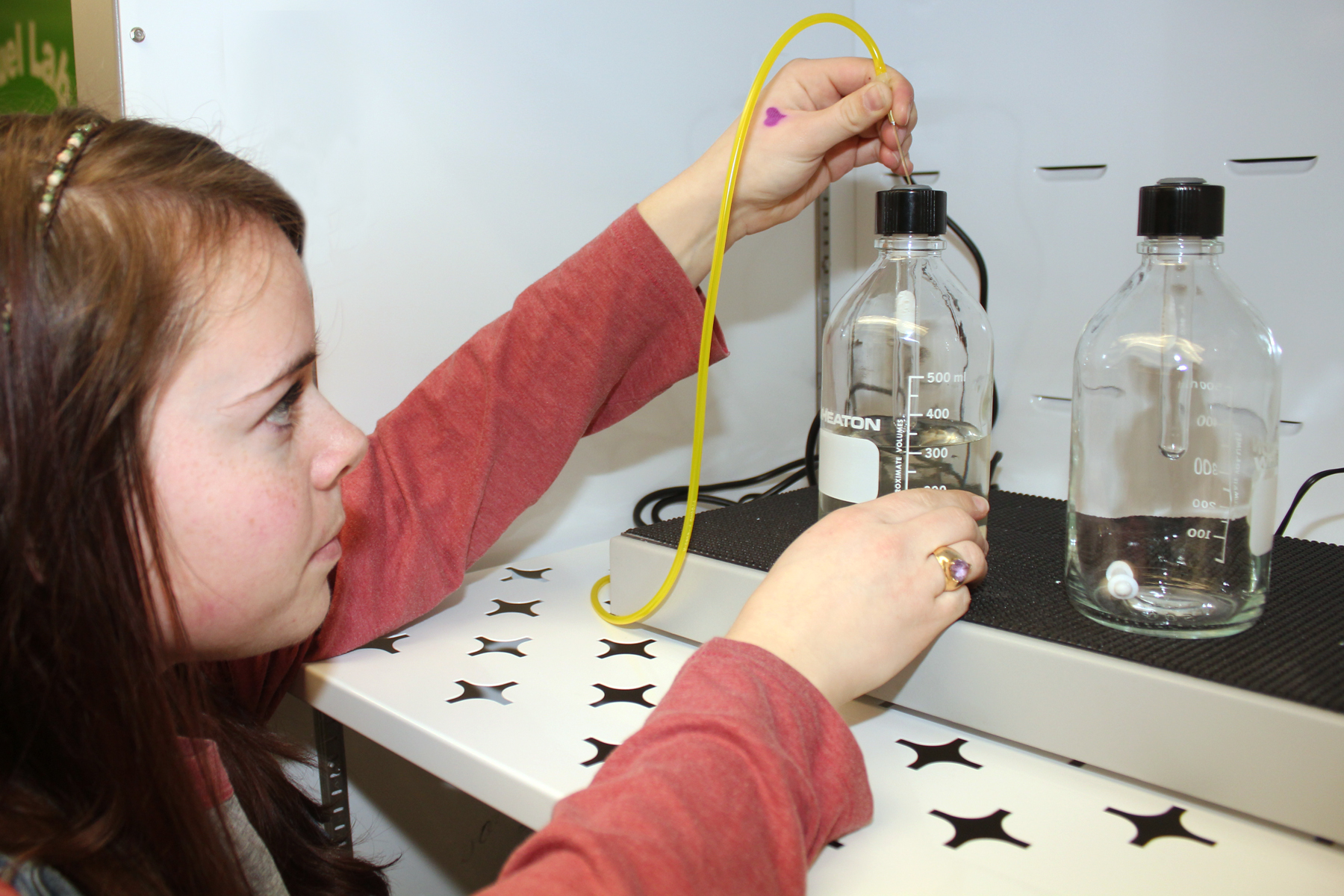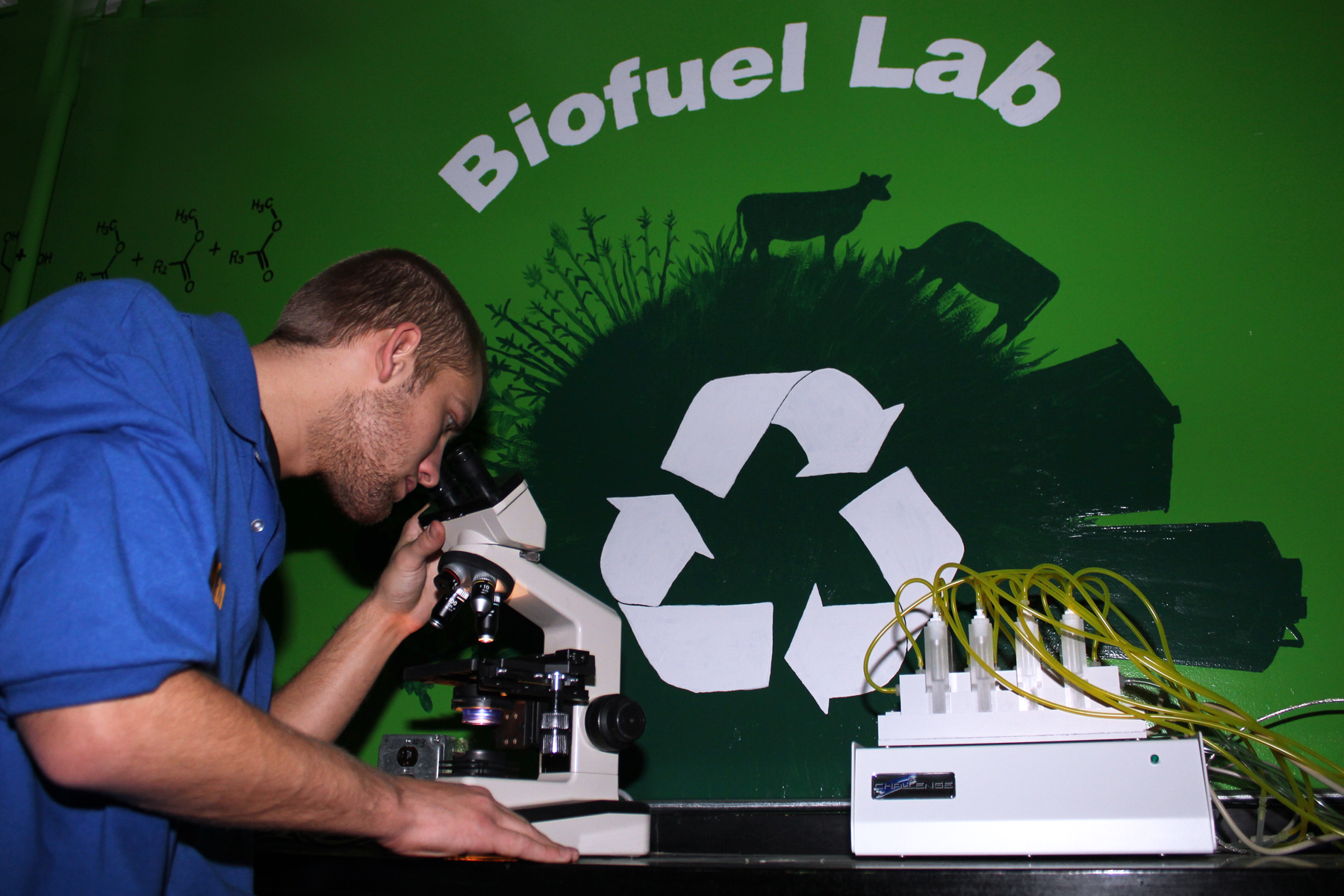 Keeping its alternative energy momentum in high gear, Muskegon Community College received an $11,064 Pure Michigan Energy grant in early January that will have its students and faculty busy building and then testing a biofuel digester between now and this summer.
Keeping its alternative energy momentum in high gear, Muskegon Community College received an $11,064 Pure Michigan Energy grant in early January that will have its students and faculty busy building and then testing a biofuel digester between now and this summer.
“It’s going to take the whole MCC Tech Department to pull this off,” said Greg Marczak, a chemistry instructor and one of the catalysts behind the project. “It’s very student oriented. It will be built by our students in welding, electronics, CAD, and with some possible input from automotive and computer information systems. We will also be incorporating our undergraduate research program. This is a complete interdisciplinary effort with chemistry and biology involved, too.”
In 2011, MCC received an initial $25,000 Pure Michigan Energy Office grant to outfit its Silver Creek Energy Lab near Whitehall, Mich. The newest grant will be used to construct a 100-gallon, pilot-sized, model anaerobic digester. The unit must be finished by July so that tests can be undertaken before the Aug. 31 completion deadline.
“This will be a movable model,” explained Marczak. “The digester is being built to be torn apart and put back together again.”
 The scalable digester, when not housed at the Silver Creek Energy Lab, will be transported to county fairs and local farms and its merits pitched to area agricultural businesses. MCC students will gain hands-on experience and research opportunities with the demonstration, installation and operation of the digesters.
The scalable digester, when not housed at the Silver Creek Energy Lab, will be transported to county fairs and local farms and its merits pitched to area agricultural businesses. MCC students will gain hands-on experience and research opportunities with the demonstration, installation and operation of the digesters.
“The whole idea is to show farmers in the area , especially those who have good feedstock, like cattle, pigs and chickens, how they can use their feedstock waste to create methane, heat their barns, and generate electricity,” said MCC instructor Jeff Stipes, another key member in the initiative.
“We will take the feedstock that’s run through the digester and use its nutrients in the fields,” said Marczak. “We’ll use the methane that is generated not only to heat the digester system but use any excess to heat the process that produces the biodiesel.”
Michigan has many smaller operations that could benefit from MCC’s scalable digester, according to Tania Howard from the Michigan Biomass Energy Program which awarded the college both grants. Howard was impressed that MCC was working with a local business at its Silver Creek Energy Lab and that it was developing curriculum for both high school and community college levels.
Both Stipes and Marczak agree that MCC is on the cutting edge with the academic opportunities in alternative energy being afforded its students.
“Right now, we’re ahead of the curve and that’s a good place to be,” said Stipes. “Digesters aren’t new, but the ability to conduct undergraduate student research using them and to train students for potential alternative energy jobs down the road, that’s progressive.”
“This is learning from the ground up,” concluded Marczak, who admittedly enjoys the excitement of being an academic trailblazer. “So even if we fail, which is not going to happen, that’s part of the learning process.”


